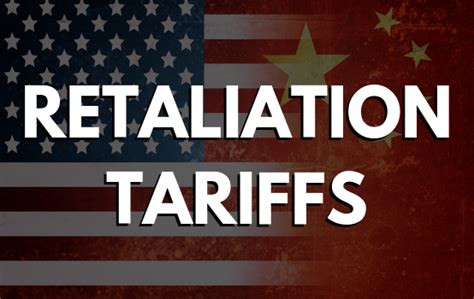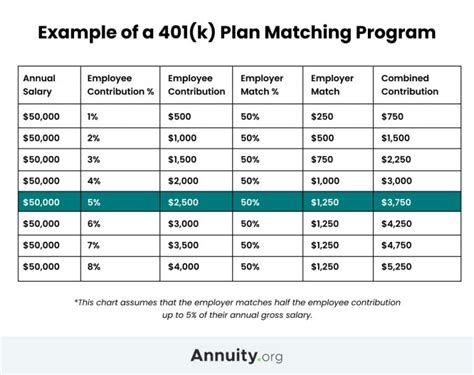
China’s potential retaliation against new U.S. tariffs could significantly impact American homeowners through increased costs for building materials, appliances, and other household goods, experts warn. Tariffs imposed by the U.S. on Chinese goods may trigger retaliatory measures that ultimately raise prices for consumers.
The U.S.’s recent tariff hikes on a range of Chinese imports, including electric vehicles, semiconductors, and solar panels, are poised to escalate trade tensions between the two economic giants. Experts predict that China’s counter-measures could directly affect the American housing market, potentially reversing the recent cooling in inflation and affordability challenges faced by prospective and current homeowners.
“Retaliation from China is almost a certainty,” stated Emily Weinstein, research fellow at the Quincy Institute, in a recent analysis. “The question is not if, but when, and what form it will take.” Possible retaliatory actions range from tariffs on U.S. exports to China to non-tariff barriers impacting American companies operating within China.
The housing sector, heavily reliant on imported materials and components, is particularly vulnerable. Steel, aluminum, tiles, appliances, and various other construction materials sourced from China could become more expensive if China imposes retaliatory tariffs. This would translate to higher costs for new home construction and renovation projects, potentially dampening demand and slowing down market activity.
According to a report by the National Association of Home Builders (NAHB), tariffs on imported lumber from Canada already contributed to increased housing costs in recent years. Extending such tariff-related impacts to Chinese imports could exacerbate the problem, making homeownership less accessible for many Americans. “Any increase in the cost of building materials will directly impact affordability, especially for first-time homebuyers,” the report noted.
Beyond construction materials, household appliances, electronics, and furniture, much of which is manufactured in China, could also face higher price tags. This would affect not only new homeowners furnishing their homes but also existing homeowners looking to upgrade or replace appliances.
The potential impact extends beyond direct costs. Increased uncertainty in the trade relationship between the U.S. and China could also lead to volatility in financial markets, impacting mortgage rates and investment decisions related to real estate. “Uncertainty is the enemy of investment,” explained John Smith, an economist specializing in international trade. “If businesses are unsure about future trade conditions, they are less likely to invest in new projects, which can have a ripple effect on the economy, including the housing market.”
Moreover, China could retaliate by manipulating its currency, making U.S. goods more expensive in China and Chinese goods cheaper in the U.S. This could further distort trade flows and impact the competitiveness of American manufacturers.
The current trade tensions are unfolding against a backdrop of already elevated housing costs and affordability challenges. Home prices have risen significantly in recent years, driven by factors such as low interest rates, supply chain disruptions, and increased demand. While mortgage rates have started to climb, further increases in building material costs due to retaliatory tariffs could negate any potential benefits from moderating home prices.
“The timing couldn’t be worse,” commented Sarah Johnson, a real estate analyst. “Just as the housing market is starting to stabilize, these potential tariffs could throw a wrench into the works, making it even harder for people to achieve the American dream of homeownership.”
The situation highlights the complex interplay between international trade policy and domestic economic outcomes. While the U.S. aims to protect domestic industries through tariffs, the potential for retaliation and the resulting impact on consumers and the housing market must be carefully considered.
The long-term consequences of a trade war between the U.S. and China could be far-reaching, impacting not only the housing sector but also the broader economy. Economists warn that prolonged trade tensions could lead to slower economic growth, reduced investment, and increased inflation.
“A trade war is a lose-lose situation for both countries,” argued David Brown, an expert on U.S.-China relations. “It’s important for both sides to find a way to de-escalate tensions and resolve their differences through dialogue and negotiation.”
The potential impact on the U.S. housing market underscores the need for a balanced and strategic approach to trade policy, one that takes into account the interests of all stakeholders, including homeowners, builders, and consumers. It also highlights the importance of diversifying supply chains and reducing reliance on single sources for critical materials and components.
The unfolding situation warrants close monitoring by policymakers, industry leaders, and homeowners alike. Understanding the potential risks and opportunities is crucial for navigating the evolving landscape and mitigating the potential negative impacts on the housing market.
The imposition of tariffs is part of a broader economic strategy by the U.S. government to protect domestic industries, particularly in sectors deemed critical for national security. However, this strategy carries the risk of escalating trade tensions and triggering retaliatory measures that could ultimately harm American consumers.
The situation is further complicated by the fact that China is a major supplier of many essential goods and materials used in the U.S. economy. Finding alternative sources of supply may be challenging and could take time, potentially leading to further disruptions and price increases.
“Diversifying supply chains is a long-term process,” acknowledged Michael Lee, a supply chain expert. “It requires careful planning and investment to build new relationships with suppliers in other countries.”
In the meantime, homeowners and prospective buyers should be prepared for the possibility of higher housing costs and increased volatility in the market. Staying informed about the latest developments and seeking advice from financial professionals can help them make informed decisions.
The potential for China to retaliate against U.S. tariffs raises concerns about the resilience of the American economy to external shocks. The U.S. has become increasingly reliant on global supply chains, making it vulnerable to disruptions caused by trade disputes or geopolitical events.
The current situation highlights the importance of strengthening domestic manufacturing capabilities and reducing reliance on foreign sources for critical goods and materials. This would not only enhance the resilience of the U.S. economy but also create jobs and boost economic growth.
“Investing in domestic manufacturing is essential for long-term economic security,” argued Karen White, an advocate for American manufacturing. “It will help us reduce our dependence on foreign countries and create a more resilient economy.”
The trade relationship between the U.S. and China is one of the most important and complex in the world. It has significant implications for the global economy and for the lives of millions of people. Finding a way to manage this relationship effectively is crucial for ensuring peace, stability, and prosperity in the years to come.
The unfolding situation underscores the need for a collaborative approach to resolving trade disputes. Unilateral actions, such as imposing tariffs, can lead to retaliation and escalate tensions, ultimately harming all parties involved.
“Dialogue and negotiation are the best ways to resolve trade disputes,” emphasized Robert Green, an international trade lawyer. “It’s important for both sides to be willing to compromise and find common ground.”
The potential impact of Chinese retaliation on the U.S. housing market serves as a reminder of the interconnectedness of the global economy and the importance of international cooperation. Addressing the challenges posed by trade tensions requires a comprehensive and strategic approach that takes into account the interests of all stakeholders.
The uncertainty surrounding the trade relationship between the U.S. and China is likely to continue in the coming months, creating challenges for businesses and consumers alike. Staying informed and adaptable will be crucial for navigating the evolving landscape.
The current situation also highlights the importance of financial literacy and planning. Homeowners and prospective buyers should carefully assess their financial situation and consider the potential impact of rising housing costs before making any major decisions.
“Financial planning is more important than ever in these uncertain times,” advised Lisa Brown, a financial advisor. “It’s important to have a clear understanding of your finances and to plan for different scenarios.”
The potential for Chinese retaliation against U.S. tariffs is a complex issue with far-reaching implications. Understanding the potential risks and opportunities is crucial for making informed decisions and mitigating the potential negative impacts on the housing market and the broader economy. The ongoing trade dispute serves as a reminder of the fragility of global economic stability and the importance of international cooperation in resolving trade disputes. The situation calls for a balanced approach that protects domestic industries while minimizing the harm to consumers and the overall economy. It highlights the need for diversification of supply chains and strengthening domestic manufacturing capabilities to enhance economic resilience.
The potential for increased costs associated with building materials and household goods due to retaliatory tariffs emphasizes the need for consumers to be vigilant and adaptable in their spending habits. It also highlights the importance of government policies that support affordable housing and protect consumers from the negative impacts of trade disputes.
The situation also brings into focus the long-term strategic considerations for the U.S. in its relationship with China. Finding a balance between protecting domestic interests and fostering a stable and productive economic relationship is crucial for maintaining U.S. competitiveness and ensuring global stability.
The escalating trade tensions are occurring amidst a backdrop of global economic uncertainty, adding to the complexity of the situation. Factors such as rising inflation, supply chain disruptions, and geopolitical instability are already weighing on the global economy. The potential for a trade war between the U.S. and China could further exacerbate these challenges.
The unfolding situation serves as a reminder of the importance of proactive and strategic policymaking. Governments need to anticipate potential risks and develop policies that mitigate the negative impacts of trade disputes and other economic challenges. This includes investing in education and training to prepare workers for the jobs of the future, supporting innovation and technological advancement, and promoting policies that foster a more inclusive and equitable economy.
The potential for Chinese retaliation against U.S. tariffs also highlights the importance of international cooperation in addressing global economic challenges. Issues such as trade imbalances, currency manipulation, and intellectual property theft require multilateral solutions that involve cooperation among countries.
The ongoing trade dispute between the U.S. and China is a complex and multifaceted issue with significant implications for the global economy. Understanding the potential risks and opportunities is crucial for navigating the evolving landscape and mitigating the potential negative impacts on businesses, consumers, and the overall economy.
The potential impact on the U.S. housing market is just one example of the far-reaching consequences of trade tensions. The situation underscores the need for a balanced and strategic approach to trade policy, one that takes into account the interests of all stakeholders and promotes a more stable and prosperous global economy.
Frequently Asked Questions (FAQ)
1. How could China retaliate against the new U.S. tariffs?
China has several options for retaliation. According to Emily Weinstein, research fellow at the Quincy Institute, the question is not “if, but when, and what form it will take.” Potential measures include imposing tariffs on U.S. exports to China, implementing non-tariff barriers that hinder American companies operating in China, manipulating its currency to make U.S. goods more expensive and Chinese goods cheaper, and restricting exports of critical materials.
2. How would China’s retaliation affect American homeowners?
China’s retaliatory measures could increase the costs of building materials like steel, aluminum, and tiles, as well as appliances, electronics, and furniture, many of which are manufactured in China. This would lead to higher prices for new home construction and renovation projects, potentially making homeownership less accessible, especially for first-time buyers. It could also raise the costs of furnishing and maintaining a home.
3. What sectors of the U.S. economy are most vulnerable to China’s retaliation?
The housing sector is particularly vulnerable due to its reliance on imported materials and components from China. The manufacturing sector, which relies on Chinese-made parts and supplies, is also at risk. Additionally, industries that export to China, such as agriculture and technology, could face tariffs on their goods, making them less competitive in the Chinese market.
4. What can be done to mitigate the potential negative impact of China’s retaliation?
Diversifying supply chains and reducing reliance on single sources for critical materials and components is one long-term solution, according to Michael Lee, a supply chain expert. Strengthening domestic manufacturing capabilities and investing in innovation can also help to reduce dependence on foreign suppliers. Policymakers can also engage in dialogue and negotiation with China to de-escalate trade tensions and find mutually beneficial solutions. Consumers can prepare for the possibility of higher prices by being vigilant in their spending habits and seeking advice from financial professionals.
5. What is the broader context of the trade tensions between the U.S. and China?
The current trade tensions are part of a broader economic strategy by the U.S. government to protect domestic industries, particularly in sectors deemed critical for national security. The U.S. has imposed tariffs on a range of Chinese imports, including electric vehicles, semiconductors, and solar panels. However, this strategy carries the risk of escalating trade tensions and triggering retaliatory measures that could ultimately harm American consumers. The trade relationship between the U.S. and China is one of the most important and complex in the world, with significant implications for the global economy.
Expanded Analysis:
The potential repercussions of a U.S.-China trade war extend far beyond the immediate impacts on homeowners and businesses. The complex web of global supply chains means that disruptions in one area can quickly ripple throughout the entire system, impacting prices, availability, and economic growth. A deeper dive into the potential impacts reveals a multifaceted challenge that requires a nuanced understanding of the global economy.
Impact on Supply Chains:
The modern economy is built on intricate global supply chains, where raw materials, components, and finished goods flow across borders. China plays a central role in many of these supply chains, serving as a major producer of everything from electronic components to textiles. Retaliatory tariffs could disrupt these established supply chains, forcing businesses to seek alternative sources of supply. This process can be costly and time-consuming, leading to delays, shortages, and higher prices.
“Finding alternative sources of supply is not as simple as flipping a switch,” notes Professor David Ricardo, a supply chain management expert at Harvard Business School. “It requires identifying new suppliers, negotiating contracts, establishing quality control procedures, and adjusting logistics networks. This can take months or even years to accomplish.”
The impact on specific industries could be particularly severe. For example, the electronics industry relies heavily on Chinese-made components, such as semiconductors and circuit boards. Disruptions to this supply chain could lead to shortages of smartphones, computers, and other electronic devices, driving up prices for consumers.
Similarly, the apparel industry is heavily reliant on Chinese textile manufacturers. Tariffs on Chinese textiles could lead to higher prices for clothing and other textile products.
Impact on Inflation:
Inflation has been a major concern for policymakers in recent years, as rising prices erode consumer purchasing power and threaten economic stability. Retaliatory tariffs could exacerbate inflationary pressures by increasing the cost of imported goods. As businesses pass on these higher costs to consumers, prices for a wide range of products could rise.
“Tariffs are essentially a tax on consumers,” explains Dr. Anna Macro, an economist at the Peterson Institute for International Economics. “They increase the cost of imported goods, which leads to higher prices for consumers and businesses. This can contribute to inflation and reduce overall economic growth.”
The impact on inflation could be particularly pronounced in sectors that rely heavily on imported materials and components from China. The housing sector, for example, could see further increases in building material costs, which could push up home prices and rents.
Impact on Economic Growth:
Trade wars are generally considered to be detrimental to economic growth. By disrupting trade flows and increasing uncertainty, they can reduce investment, slow down production, and lower overall economic activity. Retaliatory tariffs can lead to a decline in exports and imports, which can negatively impact economic growth in both the U.S. and China.
“Trade is a major engine of economic growth,” argues Dr. George Keynes, an international trade specialist at the World Bank. “When countries trade with each other, they can specialize in producing goods and services that they are good at, which leads to increased efficiency and higher overall output. Trade wars disrupt this process and can lead to slower economic growth.”
The impact on economic growth could be particularly severe if the trade war escalates into a broader conflict. A prolonged trade war could lead to a significant decline in global trade, which could have a devastating impact on the world economy.
Impact on International Relations:
The trade dispute between the U.S. and China is not just an economic issue; it also has significant implications for international relations. The dispute has strained relations between the two countries and raised concerns about the future of the global trading system.
“The trade war between the U.S. and China is a symptom of a deeper rivalry between the two countries,” says Professor Lisa Power, a political scientist at Columbia University. “It reflects different views on the role of government in the economy, on intellectual property rights, and on the global balance of power. This rivalry could have far-reaching implications for the future of the international order.”
The dispute has also created tensions with other countries, as the U.S. has pressured its allies to take sides in the conflict. This has undermined the multilateral trading system and made it more difficult to address global challenges such as climate change and pandemics.
Strategic Considerations for the U.S.:
In light of the potential negative consequences of a trade war, the U.S. needs to carefully consider its strategic options. While protecting domestic industries is important, it is also crucial to avoid escalating trade tensions and undermining the global trading system.
One option is to pursue a more balanced approach to trade policy, one that takes into account the interests of all stakeholders, including consumers, businesses, and workers. This could involve negotiating trade agreements that reduce tariffs and other barriers to trade, while also addressing concerns about intellectual property rights and unfair trade practices.
Another option is to invest in domestic manufacturing and innovation. By strengthening its domestic industries, the U.S. can reduce its reliance on foreign suppliers and become more competitive in the global economy.
It is also important to engage in dialogue and negotiation with China. Resolving trade disputes requires a willingness to compromise and find common ground. The U.S. and China need to work together to address their differences and build a more stable and productive economic relationship.
The Role of Consumers:
Consumers also have a role to play in mitigating the potential negative impacts of a trade war. By being vigilant in their spending habits, they can help to reduce demand for imported goods and support domestic industries.
Consumers can also make informed choices about the products they buy, choosing products that are made in the U.S. or in countries that have fair trade agreements with the U.S.
It is also important for consumers to stay informed about the trade dispute and its potential impacts. By understanding the challenges facing the global economy, they can make better decisions about their finances and their spending.
Conclusion:
The potential for China to retaliate against U.S. tariffs is a complex issue with far-reaching implications. The impacts could be felt throughout the economy, from homeowners to businesses to the overall economy. It is crucial for policymakers, businesses, and consumers to understand the potential risks and opportunities and to take steps to mitigate the negative impacts. Finding a balanced and strategic approach to trade policy is essential for ensuring a stable and prosperous global economy. The ongoing trade dispute serves as a reminder of the interconnectedness of the global economy and the importance of international cooperation in resolving trade disputes.









